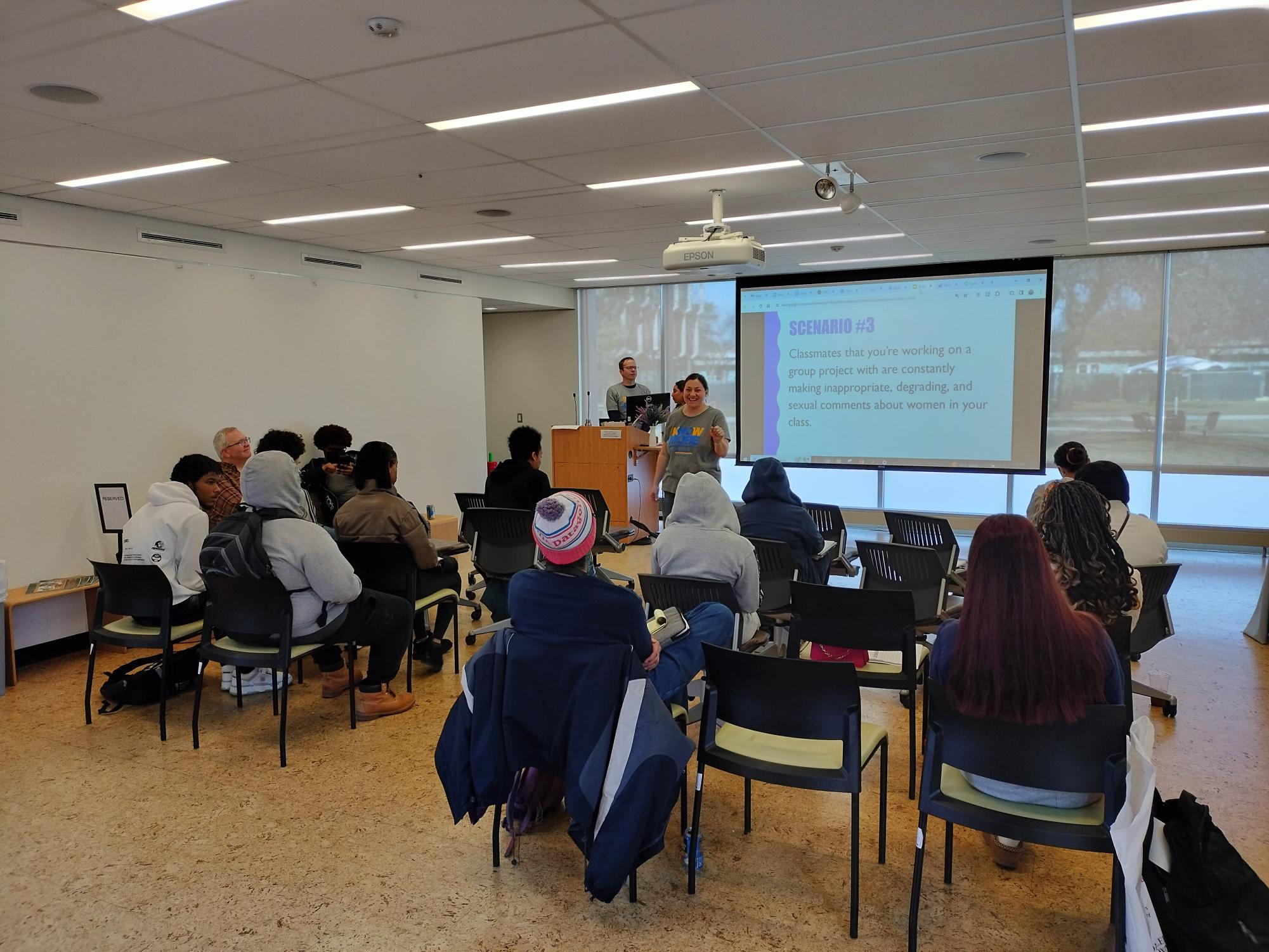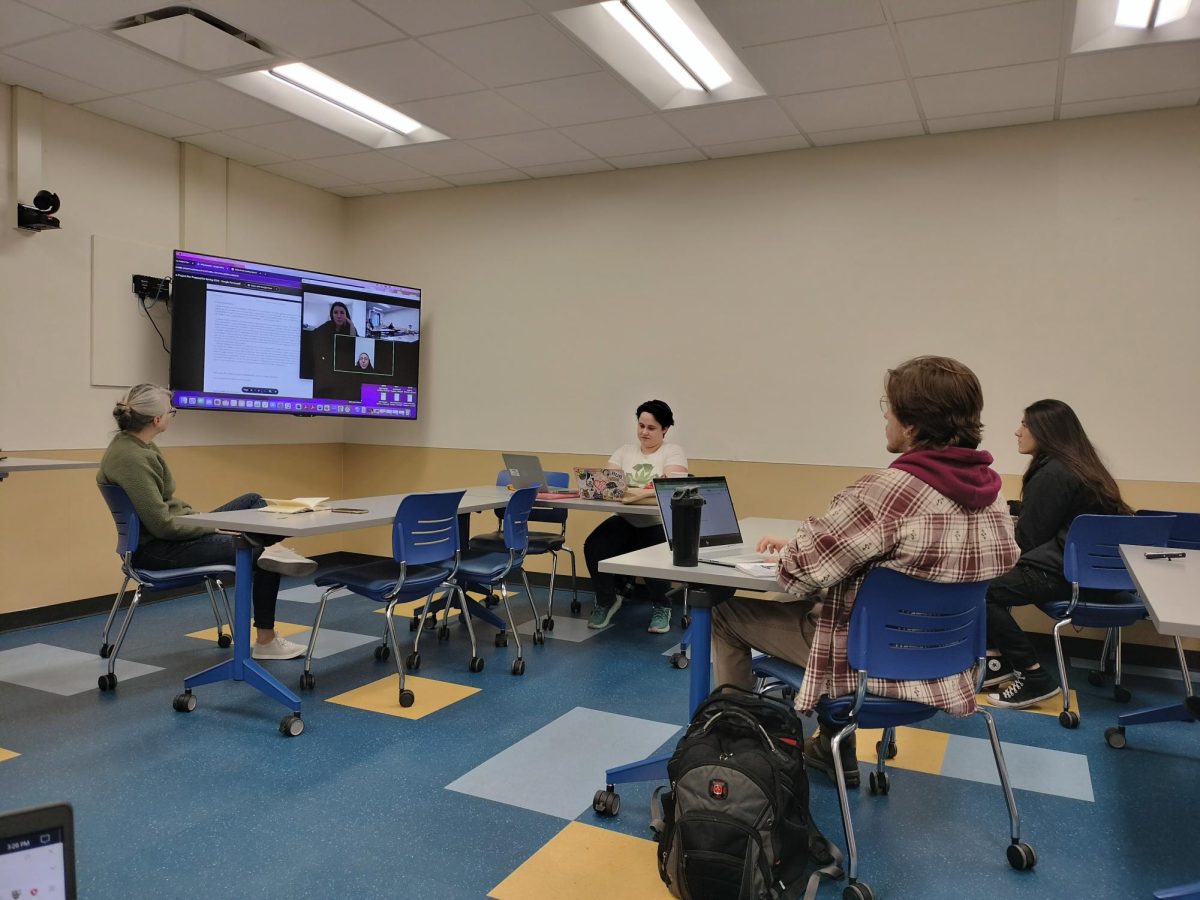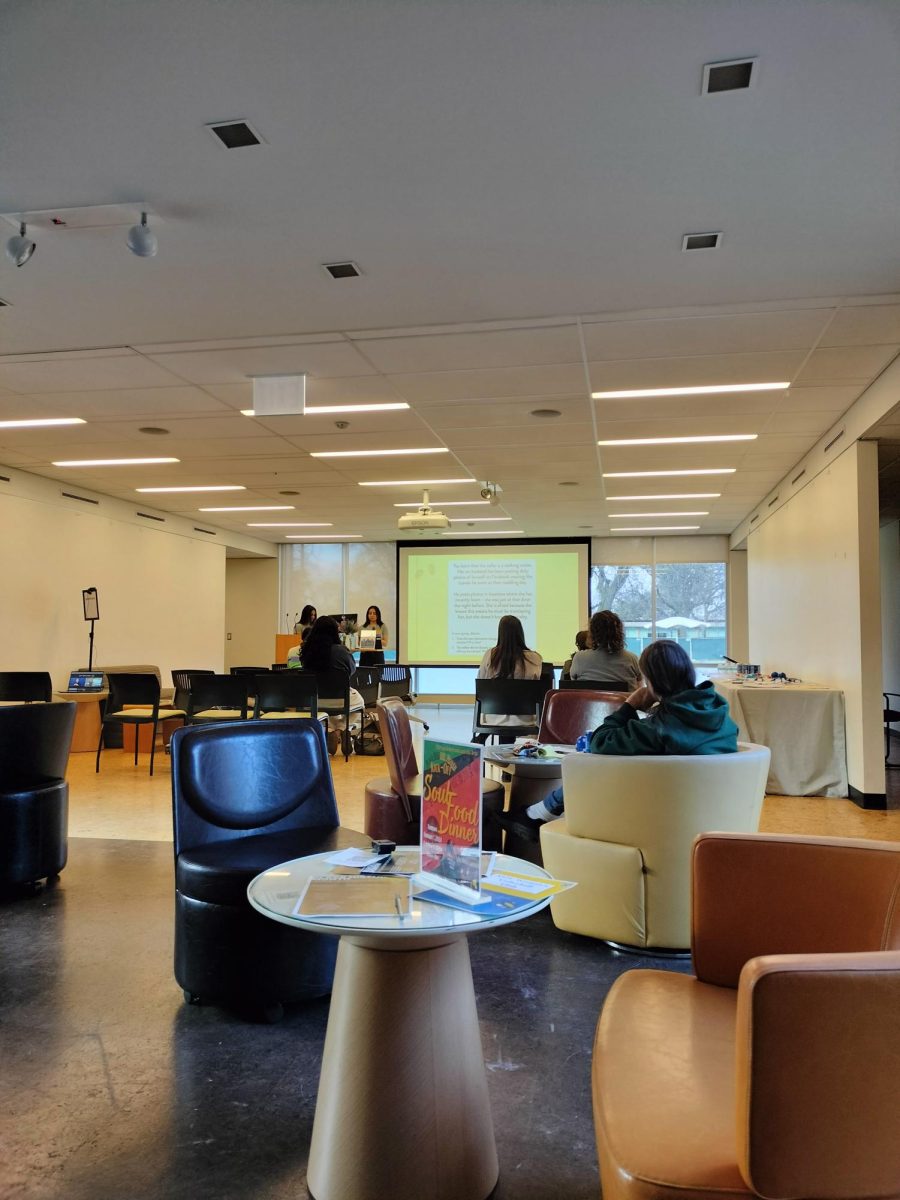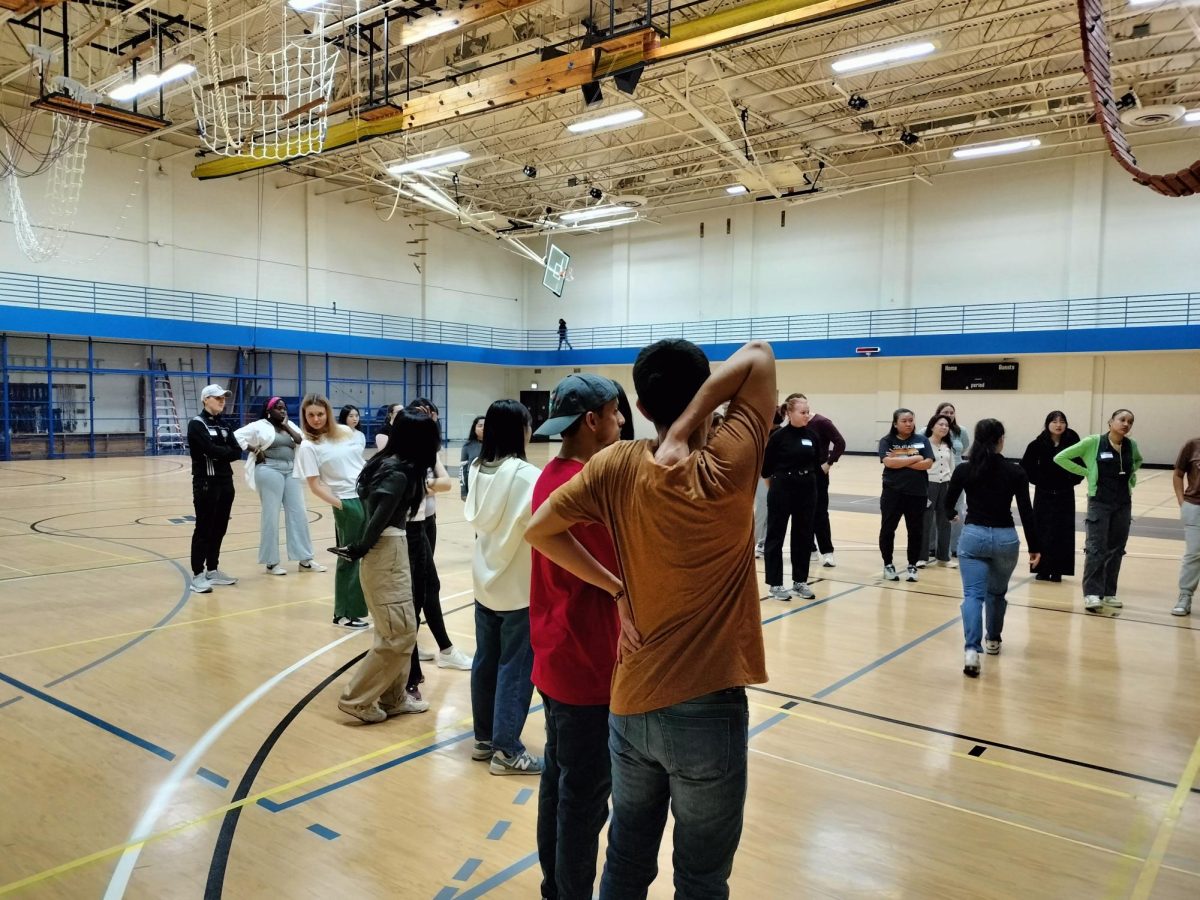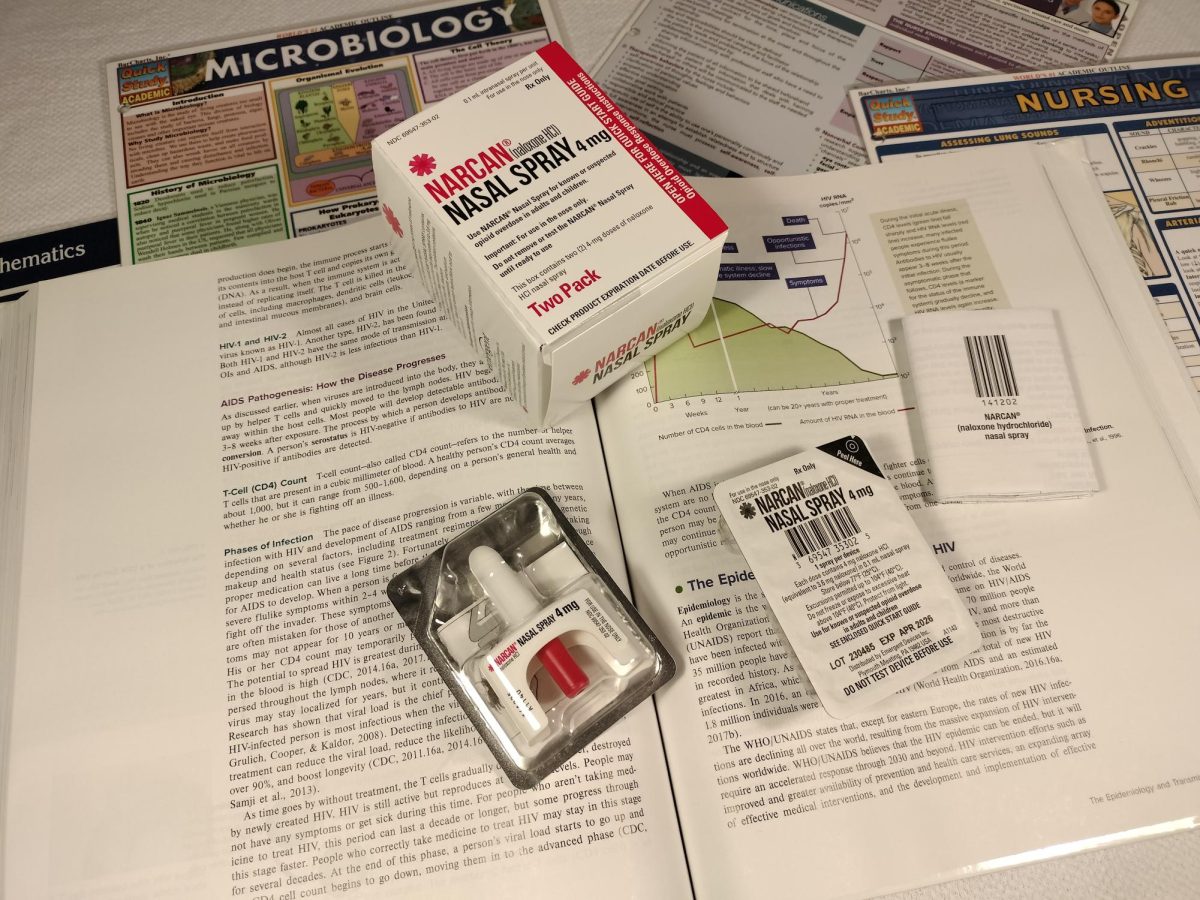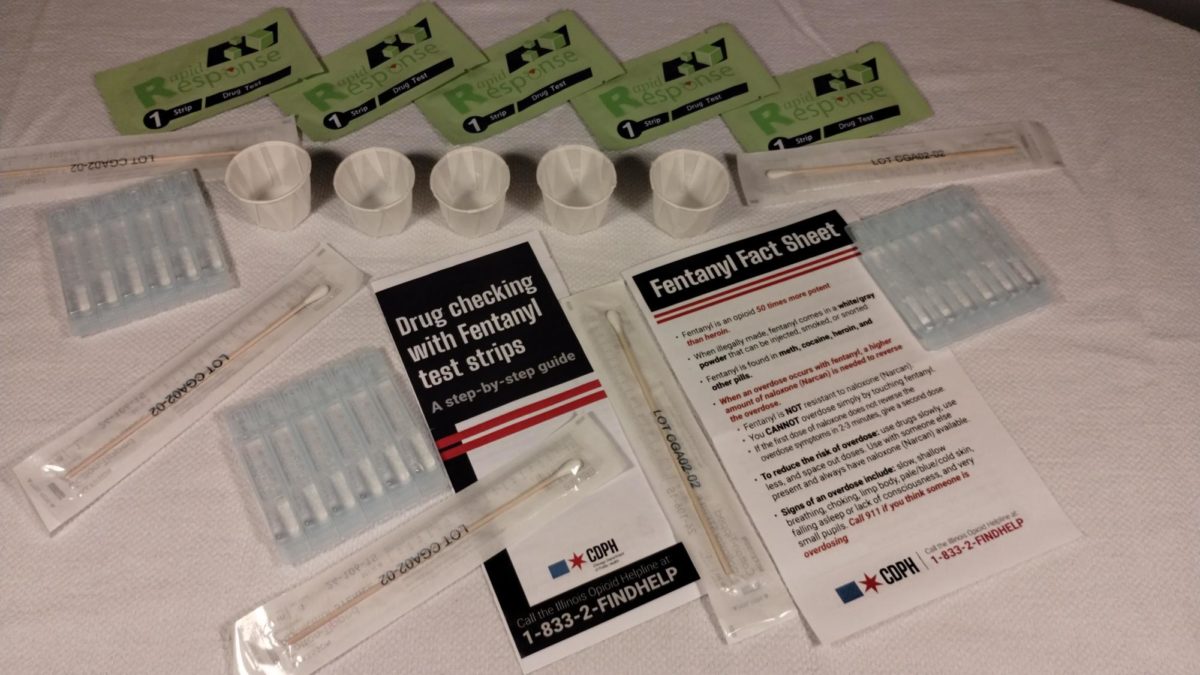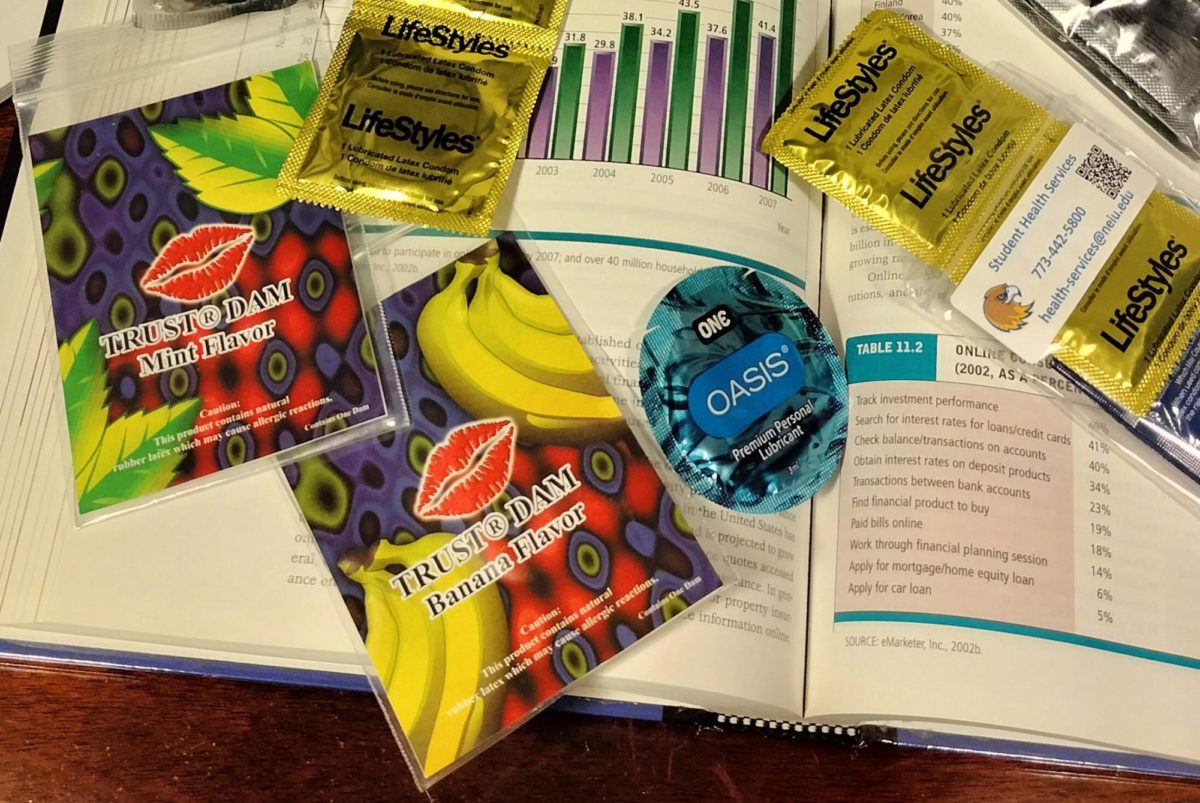On Wed., Feb. 14, 2024, the K(NO)W MORE program and Pedroso Center hosted a Bystander Intervention Training as a way to mitigate stalking, sexual, domestic, interpersonal, and dating violence. This educational event, open to students and community members, was designed to raise awareness, and provide help, support, and assistance, and empower survivors.
In an effort to combat stalking, domestic, dating, and sexual assault violence on campus, NEIU’s K(NO)W MORE program was tasked with this informative discussion on prevention and mitigation techniques. The workshop’s theme, as designed by Annette Brandt, K(NO)W MORE Program Coordinator, was aimed to educate students about the availability of resources on campus and foster understanding among the student body. Brandt trained the two Peer Wellness Coaches, Alondra Espinoza and Eric Underhill, how to present the workshop’s information empathetically over three prior weekly sessions, according to Underhill.
During the hour-long seminar, Brandt, Espinoza and Underhill engaged attendees with intellectually stimulating activities followed by discussion. The session started by talking about the significance of consent and emphasizing that genuine consent cannot be coerced.
The audience members took part in an online survey quiz created by the K(NO)W MORE team. The seminar was designed “very broad to fit every culture,” Underhill said in an interview with The Independent. The questions of the survey asked audience members whether they believed the statements to be myths or facts. Audience participants anonymously shared their perspectives by voting on their phones.
“People [who] have been sexually assaulted almost always react by appearing hysterical and crying, myth or fact?” asked the speakers. 62% of the audience answered myth, while 38% of the audience answered fact. “This is a common[ly] believed myth,” Brandt said, “The majority [of people] are going to have some sort of emotional[ly] negative reaction but it’s also very normal for people to be just flat and stoic.”
“People with disabilities are victims of sexual violence twice as much as people without disabilities, myth or fact?” asked the speakers. 33% of the audience answered myth, while 67% of the audience answered fact. “They’re targeted more often because of their vulnerability,” Brandt said. As a way to encourage more bystanders to speak up, Underhill said, “Something simple I would just use for myself is like what would I want someone to say if I was receiving harassment.”
“The problem with rape allegations is: most are false reports, myth or fact?” asked the speakers. 100% of the audience members responded that it is a myth, “I promise you that when people come forward with this type of allegation, the cost to them personally is much greater than any benefit that they will get from this,” Brandt responded, because they are “compromising their reputation by coming forward” with the truth.
“Getting help is expensive for survivors, myth or fact?” asked the speakers. 54% of the audience members responded myth, while 46% of the audience responded fact. This question is tricky and ambiguous to answer, “I want people to understand that if you are sexually assaulted or a victim of domestic violence or you’re harmed in some way and you go to the emergency room in Illinois, it will cost you nothing,” Brandt said.
Brandt said that the reason why victims of sexual assault and domestic violence are not charged with emergency room bills was that “It is not safe for victims to get bills sent to their house, so if your partner is violent against you, and you go to the hospital, [assailants] get mad about that and sometimes will retaliate against [the victims] so they are not allowed to send bills anymore to your house.” Furthermore, “[hospitals] will fill your insurance if you allow them to, but if you stay on your parent’s insurance, and you’re like ‘I don’t want my parents to know about this,’ [then] they won’t bill your insurance, [and] the state will pay for it. [Thus,] you will not get a bill, [and] they are not allowed to contact you about it at all.”
In other words, it is also important to keep in mind that it is best practice to avoid giving your health insurance or your parent’s health insurance in domestic violence situations in order to prevent this dangerous paper trail and to prevent assailants from knowing that the victim is seeking help.
“Stalking is preventable by teaching kids and young adults about ‘stranger danger’, myth or fact?” asked the speakers. 47% of the audience answered myth, while 53% of the audience answered fact. This is a myth, “The people that perpetrate this type of violence against others are most often known to the victim,” Brandt said.
The speakers asked, “The easiest and safest solution for someone in an abusive relationship is to leave their partner as quickly as possible, myth or fact?” 30% of the audience answered myth, while 70% of the audience answered fact. This is a myth, “Leaving a partner who is abusive is the most lethal time; that’s the most dangerous time; so sometimes people avoid leaving because they don’t want to die,” Brandt said, “We don’t just call it leaving in this field, we call it escaping, you have to escape from an abusive situation, and it takes planning and thought [to do so].”
The seminar discussed barriers and introduced the 5 D’s approach of bystander intervention. The 5 D’s are direct, distract, delegate, document and delay. “It’s very human nature to have fear like it’s a connected emotion,” Underhill said, “But if you feel strongly and see something that you don’t agree with or approve of [then bystanders need to intervene by following through on at least one of the 5 D’s].”
The seminar concluded with audience members contributing to a word cloud activity and sharing the reasons to which bystanders choose to avoid intervention. Then, the audience broke into three groups, and each group tackled one of three scenarios by deciding how to approach the scenario. One member of each group shared the group’s consensus with the audience.
The attendees of this session were made aware to utilize on-campus resources if stalking, sexual, domestic, interpersonal, and dating violence were to occur. The confidential advisors should be the first resources to gain empowerment because all other staff and faculty are mandated reporters. After seeking confidential advice, students must make the most informed decision about whether to speak with Student Counseling Services, Student Health Services or the University Ombuds. Currently, University Ombuds has a vacancy for the position.


